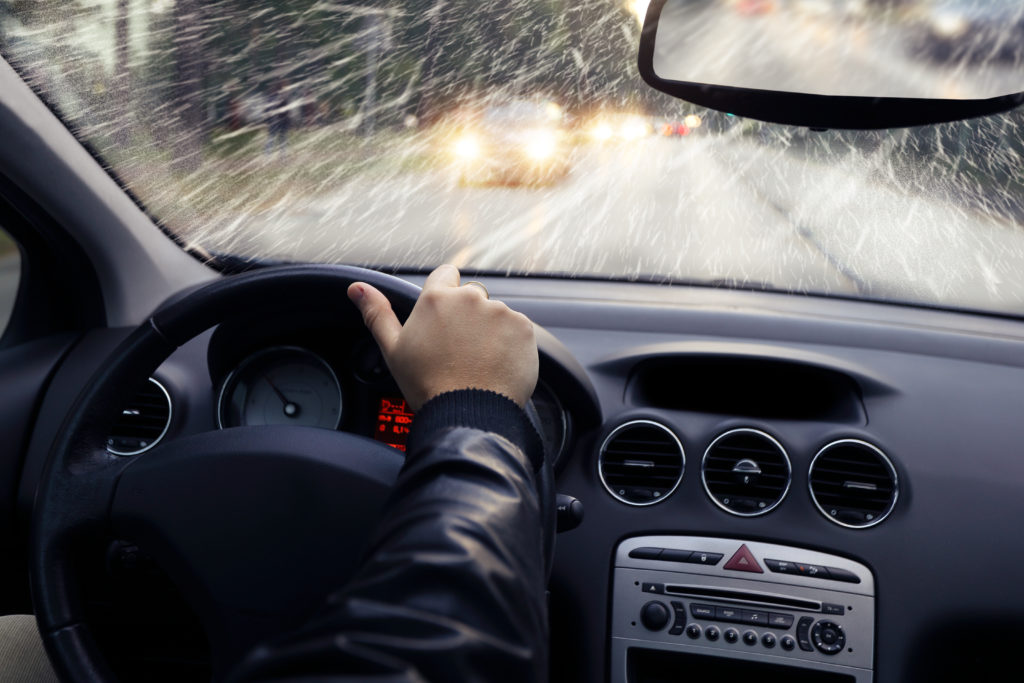In snow, ice, wind, and other poor weather conditions, accidents happen. In wintery weather, it may not always be easy to decide who was at fault in a bad accident. Knowing what is likely to happen before you drive is a good way to avoid the liability for a bad accident, even if you can’t always avoid being in one.
Winter Weather, Winter Accidents
The most common winter road conditions that lead to accidents are known to drivers everywhere: snow, ice, rain. All of these cause roadways to be slippery and make it difficult to stop. Other hazards of winter weather include:
- Unplowed roads and berms leading to high-centering
- Potholes concealed by snow and ice
- Black ice
- Snow and ice falling from other vehicles
- Wind and blowing snow
- Fog and low-visibility conditions
- Incautious drivers
In poor weather, the biggest hazard is not the road itself but the other drivers sharing the road with you. Once an accident happens, icy roads and poor visibility can lead to chain-reaction collisions and multi-car pileups. The most common winter accidents are:
- Rear-end collisions. These occur when the driver behind you doesn’t see your brake lights or taillights, misjudges the distance needed to stop, or is forced into you by being struck from behind by another car in a multi-vehicle pileup.
- Lane drifting. When ice, snow, and fog obscure the lanes, it is easy for cars to drift to the right and left and encroach on one another’s lanes. At high rates of speed, or when the roads are slick, the slightest miscalculation means cars will collide with each other.
- Spinning out. If a car begins to slide, the driver often attempts to overcorrect in the opposite direction, leading to a spin. Although countless driver education films explain that the only way to recover from a skid is to steer into it, such a maneuver is difficult to do in the panic of a slide on an icy road. Once a spin happens, colliding with another vehicle is likely.
Who Is Responsible?
Determining fault and liability in a winter accident can be tricky. Normally, the person who was speeding, following too closely, or failing to obey the rules of the road will be at fault. However, in bad weather, there may be other considerations as well.
If the road was improperly plowed or insufficiently salted, creating icy or uneven conditions, then this will need to be considered when assessing fault. Failure to close or limit traffic on a known hazardous roadway is the responsibility of the city or county, and this also must be considered when establishing fault.
However, even bad conditions will not excuse a driver who was following too closely or driving too fast for the weather. In any weather, driving under the influence will always place liability for an accident on that driver.
How Deering Hedrick Could Help
If you are involved in a winter driving accident, you should contact Attorney Mike Deering to file your insurance claim for you immediately. Ice and snow will not stay around to prove you were not at fault, so you need someone who can start the process right away.
Virginia uses the “contributory negligence” doctrine in establishing fault, which means only someone who is without fault in an accident may recover for their injuries. This means that if you are held to be even one percent at fault in the accident, you won’t be able to recover from the other driver’s insurance.
Because of the added issues of determining fault in winter driving, you need a skilled attorney on your side. If you have been struck by someone while driving in ice, snow, or other bad weather, contact Deering Hedrick and let us work with you and your insurance claim. The winter has just started, so let us help you today. Call 757-383-6848 now.








